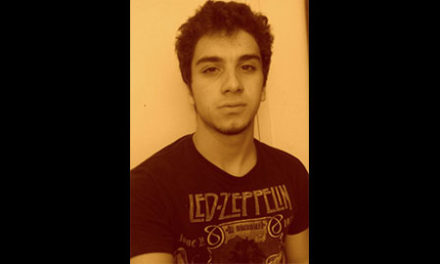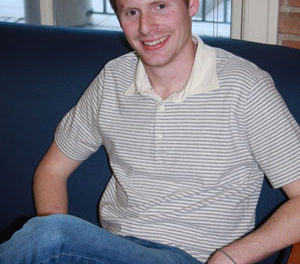Many students and faculty at Wesley College were taken by surprise last summer when they heard that Delaware State University was acquiring the college within a year.
Just as many students and faculty remain unsure how Wesley, a 148-year-old institution, ended so quickly. Some fear they’ll never know due to a lack of communication between the administrations of both schools and the people who depend upon the college for their livelihood and their education.
Professor Susan Bobby has been teaching in the English department at Wesley for 27 years and said this communication issue is nothing new.Â
“Sometimes it [communication] has been OK, but this is something that most faculty have complained about for years, the lack of transparency,†she said.Â
Kaden Curtis — a junior at Wesley — wishes there was more communication about the acquisition between each institution’s administration and the current students of Wesley.Â
“We are going to be the students [going over] there so I feel like we should know a little bit more about what’s happening,†he said. “But then again it doesn’t seem like anyone knows what’s happening. Even our president.â€
The absence of information has given way to rumors and speculation amongst everyone under the Wesley name. Covid seems to be the most obvious cause of DSU’s acquisition of Wesley, but this sentiment is not shared amongst many people in the Wesley community.Â
Bobby said COVID-19 had very little to do with Wesley’s sale.Â
“The pandemic definitely made it worse,†she said. “But why do you think there has been such a decline here at Wesley?â€
Image Description: Wells Theater void of people and full of  “Please leave this seat empty” signs
Bobby said she in part blames enrollment practices. She said, “Years of having people in enrollment management who targeted the wrong student populations,†has been the biggest contributing factor to Wesley’s decline.
Alumna Elise Knable, who has been teaching Yearbook for six years, had been a media student who graduated from Wesley in 2009.Â
She said she has seen campus life alive and well for several years: there were dances held every other month and the number of students involved was large.
Although she couldn’t pinpoint the time when things began to decline, it was obvious things were changing quickly.
Fewer people got involved in clubs and dances, she said, and those who weren’t already living on campus or already a part of student life became disconnected from their peers.
Knable said she blames a “loss of desire for the campus to stay up to date.” There was no attempt to keep up with the trends, she said, which left campus life outdated and unattractive to prospective students.
Finances played a huge part in the decline of Wesley, she said, but that was a result of a decline in student enrollment and the school’s inability to grow and attract more students.
Bobby said she loves her job, but she agrees that the atmosphere of the college has changed during the last few years.
“There has always been tension and unease, a sense that things were never just right financially,†she said. “Most of the time when we’d talk about future big campus plans, we’d know they would never pan out. There was never enough money.”
Other Faculty members also said it was the inability of the administration to raise money and increase enrollment during the past several years that caused Wesley’s demise.
Bobby said that the communication about how the transition to DSU is going has not been handled very well, either.
“I feel as if we are constantly told to believe in one thing good that will happen and it never happens,†she said. “It feels like being misled or betrayed. I get that the students are important and I am always thinking of them and their welfare, but it’s hard to listen to the president tell us we have to put our own feelings aside for the sake of the students.â€
Bobby said she also heard that faculty shouldn’t have to worry about their mortgages.
“I live on a very frugal income already,†she said. “I have cut every corner I can. But somehow I’m not supposed to be hurt at this time?”
Kaden said although he’s still staying with Wesley through to DSU, he can’t really trust what he has heard about the acquisition.
He said comments from the presidents of both institutions do not assure him of anything.
“At the end of the day, they’re just rumors,†he said. “I can’t take them at face value, you know what I mean? That might not be what’s actually happening.â€
Despite the many emails that have come out about the acquisition by DSU, Bobby said, no new or comforting information is presented.
“If people are losing their jobs, just tell them,†she said. “Dancing around the subject and stringing us along does us no good. It makes our lives even harder.â€
She said faculty, “won’t walk off the job if they are told. They’ll need their current income. They’ll just be angry and hurt which is justifiableâ€.
Bobby hopes that the administrations at both Wesley and DSU will take responsibility for the confusion they have caused.
“Everyone is grieving,†she said. “The first step in the grieving process is being able to speak your mind without retribution. So, deal with their anger by understanding and taking responsibility, but don’t invalidate the way they feel.â€
Although Kaden has heard some information about what will happen to the campus and the students at Wesley, he feels that nothing is written in stone.
“Until it actually happens, that’s when I’ll believe it is all I can say,†he said.
Regardless of whether or not the community of Wesley College knows what’s truly happening or not, one thing’s for sure — Wesley College has come to an end.

   Interview with Kaden CurtisÂ








